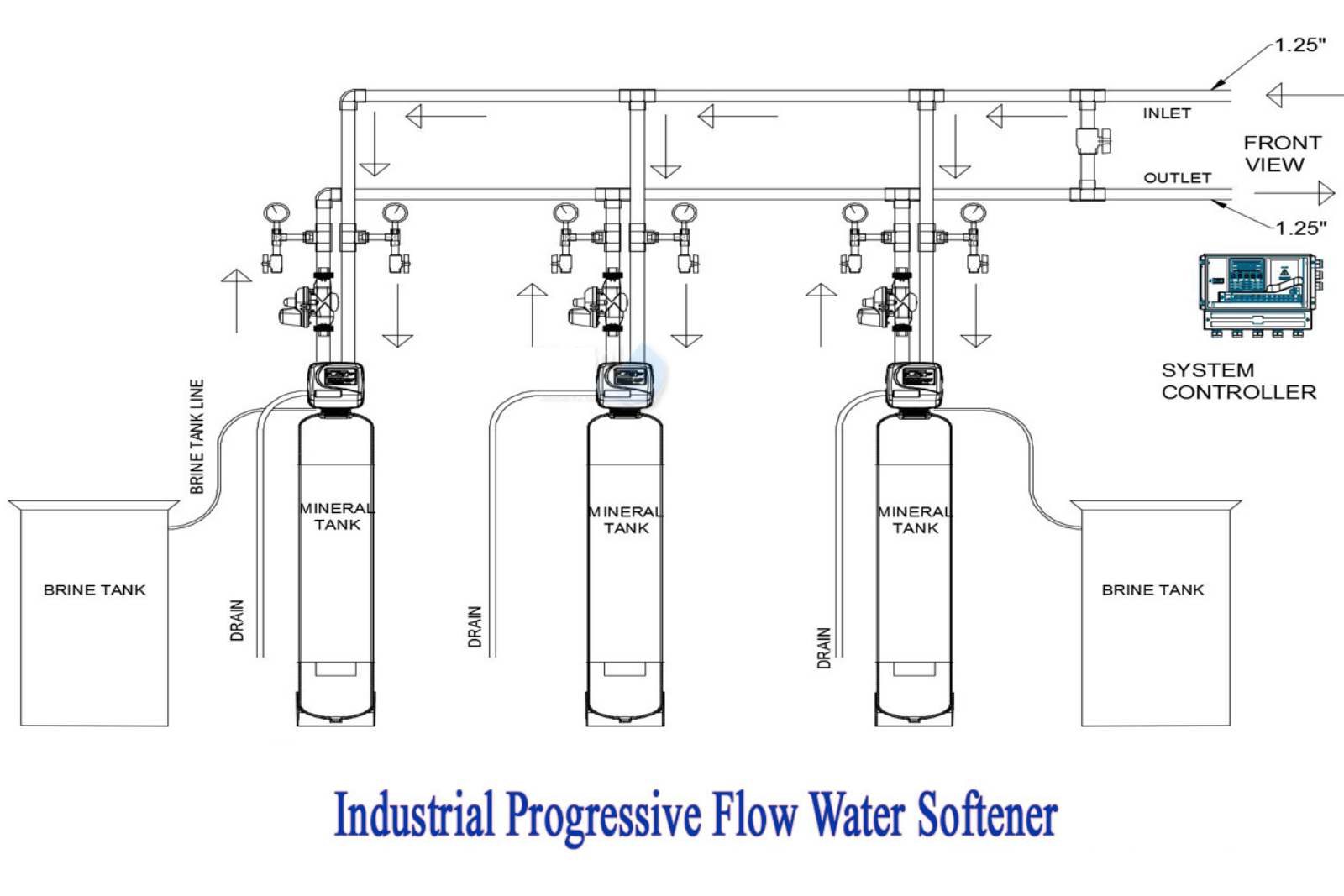Water Softening Plant: Removing Hardness for Better Water Quality
A water softening plant is an essential facility designed to remove hardness minerals, primarily calcium and magnesium ions, from water. Hard water can cause various issues such as scale buildup in pipes and appliances, reduced soap efficiency, and undesirable effects on industrial processes and equipment. The process of water softening involves replacing the calcium and magnesium ions with sodium ions, resulting in softened water that is more suitable for domestic, commercial, and industrial applications.
Quality Services
Stringent quality control measures at every step, ensuring only the best products and services are delivered to our clients.
Expertise
Highly skilled and knowledgeable team of professionals who use the latest technology and techniques for water treatment.
Support
Dedicated customer support team providing timely and efficient after-sales service, ensuring complete customer satisfaction.
Plant Process:-

1. Water Hardness: Water hardness is a measure of the concentration of calcium and magnesium ions present in water. These ions are naturally found in water sources and can lead to several challenges when the water is used:
Scale Buildup: Calcium and magnesium ions can precipitate and form mineral deposits, commonly known as scale, inside pipes, appliances, and industrial equipment. This reduces efficiency and increases maintenance costs.
Soap Inefficiency: Hard water reacts with soap to form insoluble soap scum, reducing the effectiveness of cleaning agents and requiring higher soap usage.
Skin and Hair Issues: Hard water can leave a residue on skin and hair, leading to dryness, irritation, and dull appearance.
2. Water Softening Process: The water softening process typically involves a technique called ion exchange, which replaces the calcium and magnesium ions with sodium ions. The process includes the following steps:
Resin Bed: The heart of the water softening plant is the resin bed, which contains tiny resin beads coated with sodium ions. As hard water passes through the resin bed, calcium and magnesium ions in the water are attracted to the resin beads, displacing the sodium ions.
Ion Exchange: Calcium and magnesium ions are exchanged for sodium ions on the resin beads, effectively softening the water. The process continues until the resin bed becomes saturated with calcium and magnesium ions.
Regeneration: When the resin bed is saturated, it needs to be regenerated. This is done by flushing a brine solution (highly concentrated sodium chloride solution) through the resin bed. The sodium ions in the brine solution replace the accumulated calcium and magnesium ions on the resin beads. The displaced calcium and magnesium ions, along with the excess brine solution, are then flushed out as wastewater.
3. Types of Water Softeners: There are several types of water softeners available, including:
Salt-Based Water Softeners: These are the most common type, using a resin bed and regeneration process involving salt (sodium chloride) to restore the resin’s ability to exchange ions.
Salt-Free Water Conditioners: These systems do not remove calcium and magnesium ions but modify their structure so they are less likely to form scale. They do not require regeneration with salt.
Dual-Tank Water Softeners: These systems have two resin tanks, allowing for continuous softening and regeneration without interruption.
4. Benefits of Water Softening: Water softening provides numerous benefits, including:
Reduced Scale Buildup: Softened water reduces scale buildup in pipes, appliances, and industrial equipment, extending their lifespan and improving efficiency.
Improved Cleaning: Softened water enhances the effectiveness of soaps and detergents, leading to cleaner dishes, laundry, and surfaces.
Healthier Skin and Hair: Softened water can leave skin and hair feeling softer and less prone to irritation.
Energy Efficiency: Softened water improves the efficiency of water heaters and appliances, potentially leading to energy savings.
5. Considerations: It’s important to note that while water softening offers numerous advantages, it does increase the sodium content of the water. This might be a concern for individuals on low-sodium diets or for some specific industrial applications. Additionally, proper maintenance and regular regeneration of the resin bed are essential to ensure the continued effectiveness of the water softening plant.
Conclusion: A water softening plant is a valuable asset for improving water quality and preventing the negative effects of hard water. By using ion exchange technology, water softeners remove calcium and magnesium ions, reducing scale buildup and enhancing the efficiency of appliances, cleaning processes, and personal care routines. Water softening plants play a crucial role in providing households, businesses, and industries with water that is more compatible with their needs and contributes to better overall efficiency and comfort.


